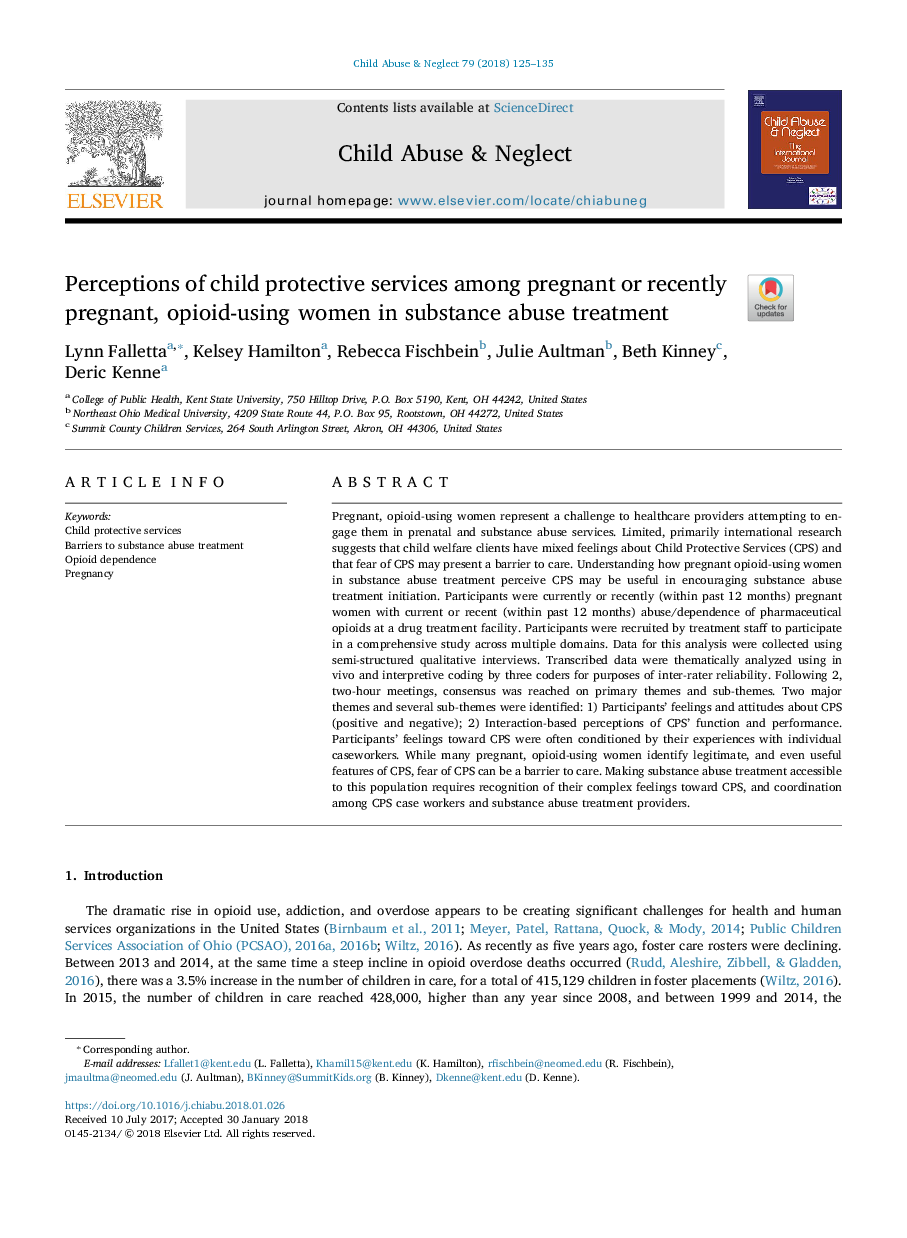ترجمه فارسی عنوان مقاله
ادراکات خدمات محافظتی کودک در زنان باردار یا اخیرا باردار مصرف کننده مواد مخدر در درمان سوء مصرف مواد
عنوان انگلیسی
Perceptions of child protective services among pregnant or recently pregnant, opioid-using women in substance abuse treatment
| کد مقاله | سال انتشار | تعداد صفحات مقاله انگلیسی |
|---|---|---|
| 116099 | 2018 | 11 صفحه PDF |
منبع

Publisher : Elsevier - Science Direct (الزویر - ساینس دایرکت)
Journal : Child Abuse & Neglect, Volume 79, May 2018, Pages 125-135
ترجمه کلمات کلیدی
خدمات محافظتی کودک، موانع درمان سوء مصرف مواد، وابستگی به مواد مخدر، بارداری،
کلمات کلیدی انگلیسی
Child protective services; Barriers to substance abuse treatment; Opioid dependence; Pregnancy;

